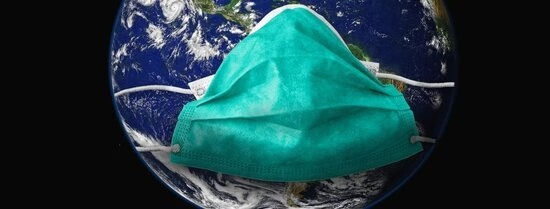COVID-19 is sweeping the globe and widely triggers top-down emergency measures.
While there is no doubt that top-down policies and expert knowledge is required to curb the crisis, there are also indications about the limitations of this approach. One of these is that authorities in many areas are seen to instrumentalize COVID-19 to increase surveillance and control, at the detriment of human rights and civil society.
Another major issue is that top-down approaches may ignore, stifle or expire local coping capacities, social network and small-scale formal and informal institutions. Based on previous experiences and research, this may have grave consequences and turn the COVID-19 response counter-productive:
- Local institutions are people’s first and very often only line of defence against crisis. Where top-down policies don’t reach out to communities to provide services and people cannot rely on local institutions, they become increasingly vulnerable.
- In areas where state-society relations are already characterized by mistrust before the crisis, there is a high risk that people will not believe the messages about COVID-19 coming from the authorities, and try to circumvent policies aiming to prevent the spread of the virus. During the Ebola crisis in Sierra Leone, for example, households would hide patients in their houses rather than trusting the health system.
- One-sided top-down policies that will focus on curbing COVID-19 may contribute to spill-over crisis at the local level, including crises of livelihoods and food security. This can lead to adverse coping mechanisms that actually increase the risks of COVID-19. For example, there are indications that some women in DRC who cannot rely on petty trading anymore because of the Covid-19 regime resort to survive through transactional sex.
The response to COVID-19 can be improved when authorities, health systems and aid agencies build more on local institutions
The When disaster meets conflict research team embarked on a research to monitor the local coping mechanisms against COVID-19 and its spill-over crises. The aim of this research was to inform better linkages between top-down, external measures and local, socially and culturally appropriate initiatives. We believe that the response to COVID-19 can be improved when authorities, health systems and aid agencies build more on local institutions.
To achieve the above, in April 2020 we teamed with International Institute of Social Studies MA students and PhD researchers at the to analyze local responses to COVID-19 in 7 countries. Each country study was supervised by a member of the ‘When disaster meets conflict’ research team.
The project yield 4 working papers, 10 blog posts related to COVID-19 and two journals articles are at the moment been reviewed in peer-review journals.
County-based teams and outputs
Other COVID-19 related outputs
- Hilhorst, Dorothea 'Putting COVID-19 into Context(s).' Bliss (blog), 15 June 2020.
- Mena, Rodrigo 'Rethinking How to Respond to COVID-19 in Places Where Humanitarian Crises Intersect.' Bliss (blog), 7 April 2020.
- Mena, Rodrigo and Dorothea Hilhorst 'Remote Research in Times of COVID-19: Considerations, Techniques, and Risks by Rodrigo Mena and Dorothea Hilhorst.' Bliss (blog), 20 May 2020.
Contact
For more information about this project, please contact Professor Thea Hilhorst or Dr Rodrigo Mena







